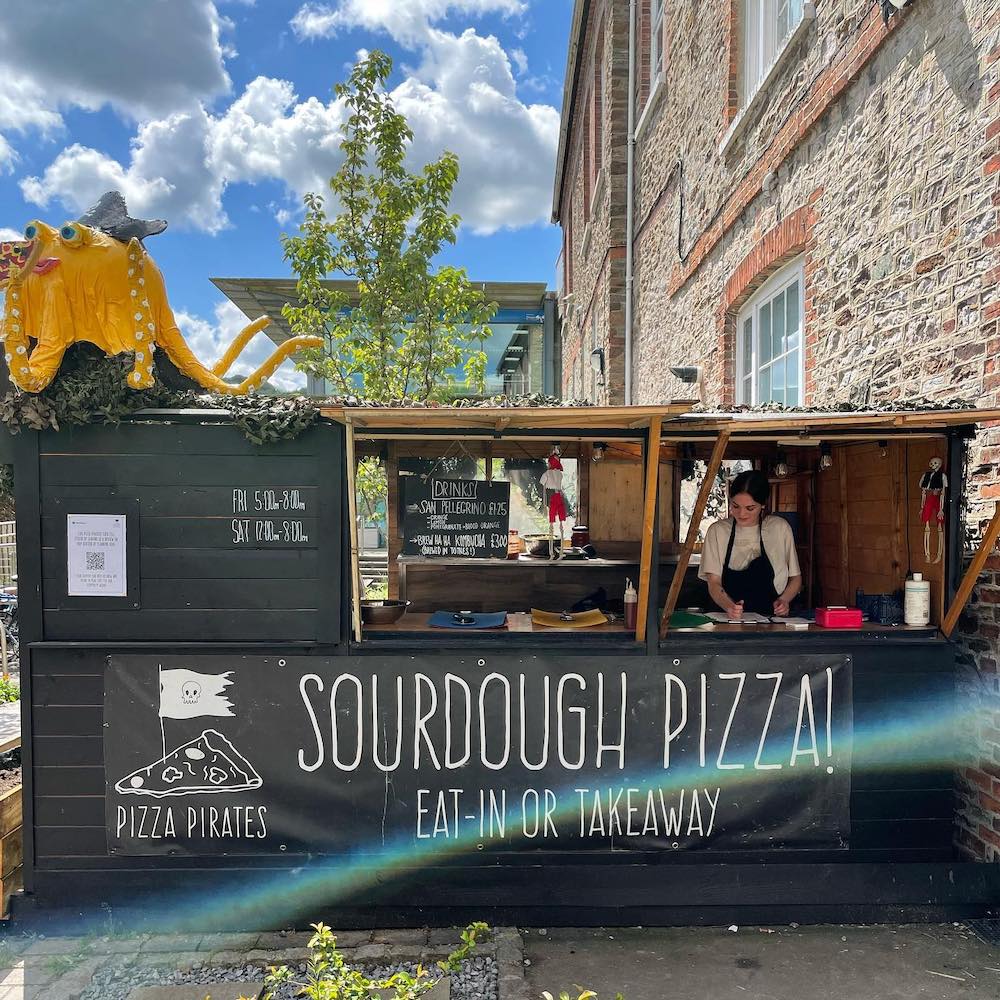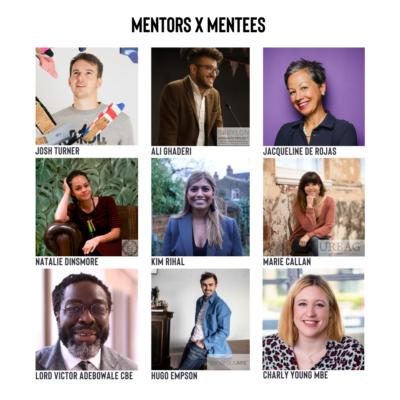
Working in the business v working on the business
What happens when you’re so busy doing the work that you can’t take a step back and focus on strategy for the business you know can grow?
Social enterprises often want to compete in the market on the quality of the service or product they are selling. But a change in strategy reaped dividends for one social entrepreneur.

Although chef friends had praised him for the quality of his sourdough, Simon Dyer never thought that would lead to running a pizza business that employs people with disadvantages. It all started when an entrepreneur friend told him about a pizza oven sitting unused in a cafe garden.
“I remember he just kept saying to me, you have to make it happen! You ask for forgiveness, you don’t ask for permission! Just go and make it happen!” said Simon.
Simon asked the owner of the cafe to let him use the oven, convincing him it would add value to his business. The owner agreed and Pizza Pirates was born.
He describes Pizza Pirates as a kind of ‘anti-Gordon Ramsay’ environment, a safe space where people aren’t judged and, if their behaviour does impact the business negatively in some way, where they can feel free to talk about it.
Simon tells the story of a formerly homeless member of staff that was introduced to him by a customer. Simon trained him and he started working with Pizza Pirates and, for the first month, everything was fine. But then one day Pete (not his real name) turned up ‘steaming drunk’ and was sent home.
When Simon called him the next day he wanted to know if he had lost his job, but Simon reassured him that wasn’t the case and they should talk about it over a cup of tea. Pete revealed that the day he was drunk was the anniversary of something awful that happened in his life.
“He hasn’t done it since. He said to me a few months after he had settled in that it’s the first time he’s ever stayed that long in a job because he feels valued and that he can be himself a little bit,” said Simon.
Simon has ambitions for Pizza Pirates to grow to become a chain, so we matched him with Iqbal Wahhab, one of Britain’s top restauranteurs, with a reputation for excellence thanks to his restaurants Roast and The Cinnamon Club.
Simon had initially resisted marketing Pizza Pirates as a social enterprise, preferring that people bought his pizzas because of the quality of the product.
But Iqbal advised him not to cut off his nose to spite his face, reassuring him that he was a proper professional commercial business, just one that was creating social impact as well. And when Iqbal suggested what he was doing was ‘pizza with purpose,’ Simon thought the slogan was irresistible; it’s now the first thing you see when you visit his website.
“We really pushed the social enterprise stuff a lot more in our marketing, adding the social enterprise logo to our flyers and social media, using the words ‘Pizza With Purpose’,” said Simon.
One of his directors, aware that Iqbal had advised to push the social enterprise angle more, let Simon know about a local Dragon’s Den style pitching opportunity at a local enterprise forum (LEF). To say it went well is an understatement.
“We were just bowled over by the support. We received £4,000 of direct cash donations and £15,000 worth of commercial fridges. We also got free advertising and marketing out of it.
“And what I’m noticing is that when I approach people now in the community to tell them I want to work with them, they want to work with us! Whereas before no one had heard of us, we were just another food place,” said Simon.
He credits Iqbal for giving him the confidence to be proud of the social impact he is making, which resulted in him including it in his successful pitch to the LEF. As a result he now has a kitchen where he can train staff and his social enterprise has grown too. He’s increased his number of staff from three to eight people and his turnover has grown by more than 100%.
“The thing that stayed with me, genuinely, was how honoured I felt after talking to Iqbal. I came off that call and I felt I’d really achieved something to have spent time talking to him. I don’t normally get that – I’m not the kind of person that looks up to people.
“But there was something about his manner, his generosity of spirit. He was prepared to spend time talking to me and helping me and I felt really honoured by that. It didn’t feel like a tick box exercise, you know? It has stuck with me, it felt like being taken seriously,” said Simon.
Could your social enterprise benefit from support with a mentor? Start here.

Working in the business v working on the business
What happens when you’re so busy doing the work that you can’t take a step back and focus on strategy for the business you know can grow?

Read our 2022/23 Impact Report
In our Impact report we share that we proudly hosted 73 mentoring sessions for social enterprises and charities in the past year.

Social entrepreneurs partner to help homeless and refugees
Proving you’re never too young to be a social entrepreneur is 17 year old Jacob Bell, whose candle making has led to a partnership with one of the poster boys of social enterprise.